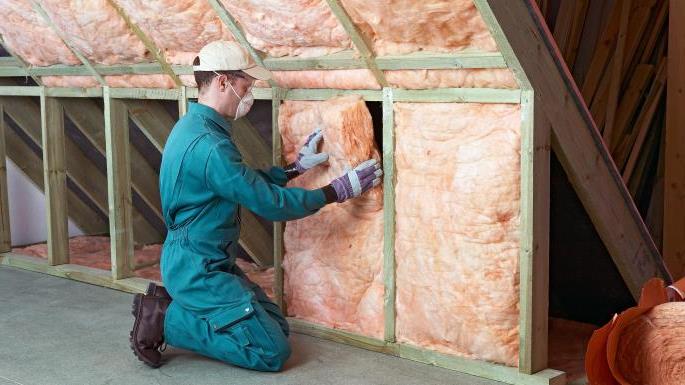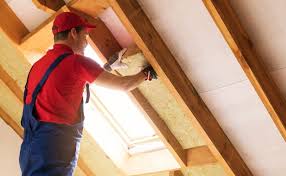Insulation plays a crucial role in making homes energy-efficient, reducing heating and cooling costs, and improving overall comfort. However, the initial cost of installing insulation can be a significant barrier for many homeowners. Fortunately, Insulation Grants are available to help offset these costs, making energy-efficient upgrades more accessible. This article explores the various types of insulation grants, how to qualify for them, and the benefits they offer.
Insulation Services are crucial for enhancing the energy efficiency, comfort, and safety of buildings. Whether you're constructing a new home, renovating an existing one, or simply looking to improve your current energy usage, professional insulation services can offer significant benefits.
What Are Insulation Grants?
Insulation grants are financial aids provided by government agencies, non-profit organizations, or utility companies to help cover the cost of installing insulation in homes. These grants aim to improve energy efficiency, reduce carbon footprints, and make homes more comfortable and affordable to heat or cool.
Types of Insulation Grants
Government Grants:
Federal Programs: In many countries, federal governments offer grants and subsidies to promote energy efficiency. For instance, in the United States, programs like the Weatherization Assistance Program (WAP) help low-income households with the cost of home insulation improvements. This program is designed to reduce energy consumption and lower utility bills for qualifying residents.
Local and State Programs: Many states and municipalities have their own insulation grant programs. These can vary widely in terms of eligibility and benefits. For example, some states offer incentives to homeowners who install insulation as part of a larger home energy audit or upgrade.
Utility Company Grants:
Utility companies often provide grants or rebates for energy-efficient home improvements, including insulation. These incentives are typically part of broader energy-saving programs designed to reduce demand on the energy grid. Utility companies may offer direct financial assistance, rebates on insulation materials, or discounts on professional installation services.
Non-Profit Organization Grants:
Various non-profit organizations and community groups offer grants and financial assistance for home insulation projects. These grants often target low-income households, elderly individuals, or other vulnerable populations. Non-profits like Habitat for Humanity or local community action agencies may provide or facilitate access to insulation grants.
How to Qualify for Insulation Grants
Eligibility for insulation grants depends on several factors, including the type of grant, the applicant’s income level, and the specific requirements of the program. Here are some common criteria:
Income Level:
Many insulation grants are targeted at low-to-moderate-income households. Programs like the Weatherization Assistance Program (WAP) require proof of income to ensure that the benefits are directed towards those in need.
Homeowner Status:
Grants may be available only to homeowners, not renters. However, some programs might allow landlords to apply for grants to improve rental properties, with the understanding that the improvements will benefit the tenants.
Home Type and Condition:
The type of home (e.g., single-family, multi-family) and its current condition can influence eligibility. Some programs have specific requirements regarding the age or condition of the home.
Energy Audits:
Some grants require an energy audit to identify areas where insulation can be improved. The audit helps determine the most cost-effective solutions and ensures that the grant is used efficiently.

Application Process
Applying for an insulation grant typically involves several steps:
Research Available Programs:
Start by researching the insulation grant programs available in your area. Check federal, state, and local government websites, utility company promotions, and non-profit organization offerings.
Check Eligibility Requirements:
Review the eligibility criteria for each program to ensure you meet the necessary requirements.
Gather Documentation:
Prepare the required documentation, which may include proof of income, property ownership, and details from a recent energy audit.
Submit an Application:
Follow the application process for the chosen grant program. This might involve filling out forms online, contacting program administrators, or working with a local energy advisor.
Installation:
Once approved, you may need to schedule the installation of insulation through a recommended contractor or follow specific guidelines provided by the grant program.
Benefits of Insulation Grants
Cost Savings:
One of the most significant benefits of insulation grants is the reduction in out-of-pocket expenses for energy-efficient upgrades. By covering part or all of the installation costs, grants make it easier for homeowners to improve their property without facing financial strain.
Energy Efficiency:
Insulation improves the energy efficiency of a home by reducing heat loss in the winter and keeping cool air inside during the summer. This efficiency leads to lower utility bills and a smaller carbon footprint.
Increased Comfort:
Proper insulation contributes to a more comfortable living environment by maintaining a consistent indoor temperature and reducing drafts.
Increased Property Value:
Homes with improved insulation are more attractive to potential buyers, potentially increasing property value and marketability.
Environmental Impact:
By reducing energy consumption, insulation grants contribute to environmental conservation. Lower energy use decreases greenhouse gas emissions, helping to combat climate change.
Conclusion
Insulation grants are a valuable resource for homeowners seeking to improve their energy efficiency and reduce heating and cooling costs. By understanding the types of grants available, eligibility requirements, and the application process, you can take advantage of these opportunities to enhance your home’s comfort and sustainability. Whether through government programs, utility company incentives, or non-profit assistance, insulation grants provide a practical solution for making energy-efficient upgrades more affordable. Don’t miss out on the chance to benefit from these programs—explore your options and start your journey towards a more energy-efficient home today.





Comments